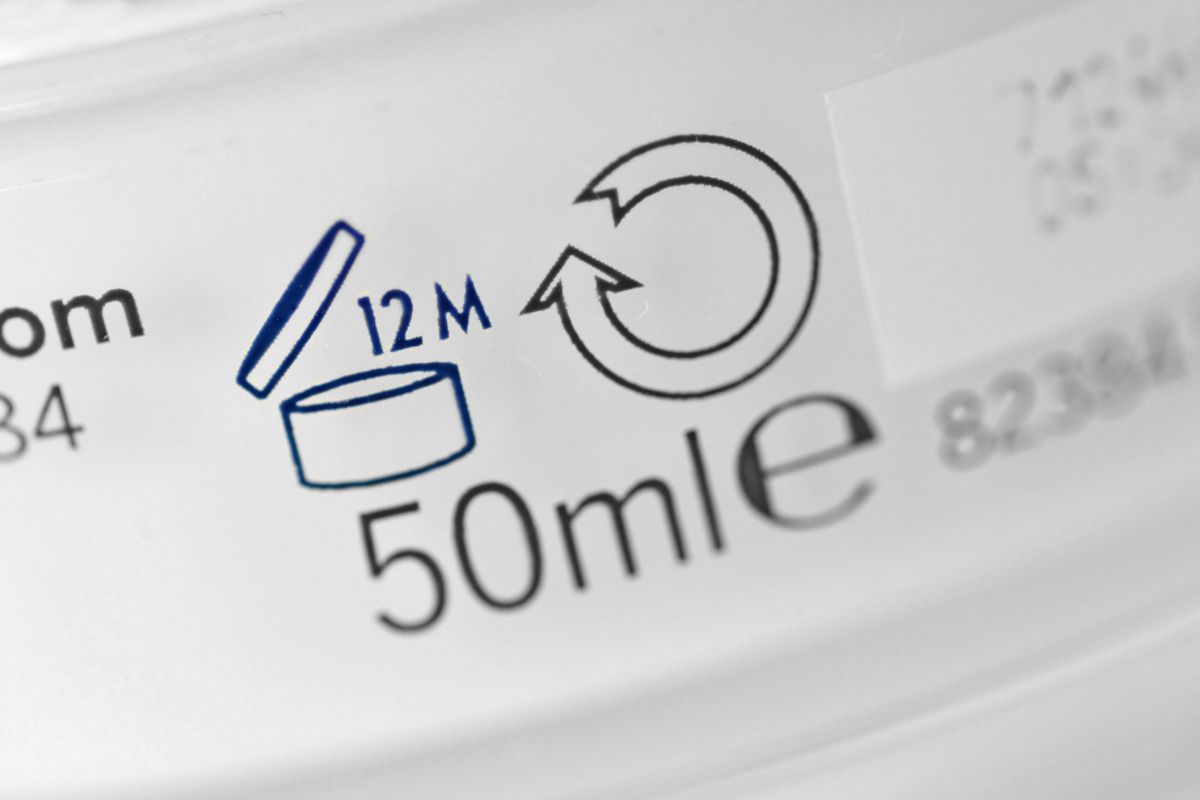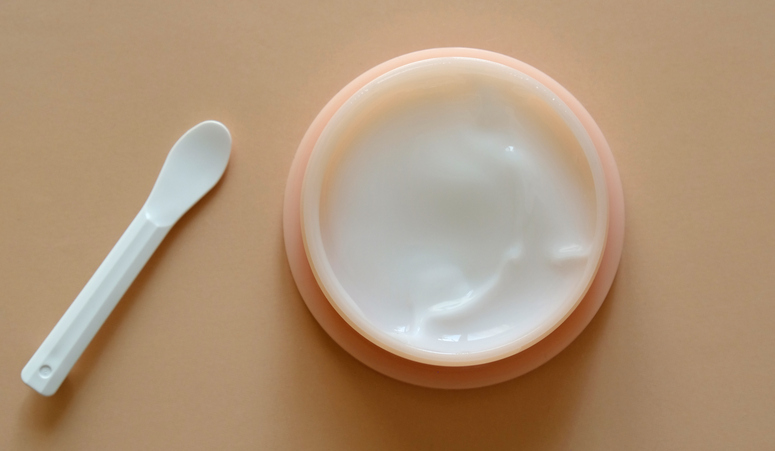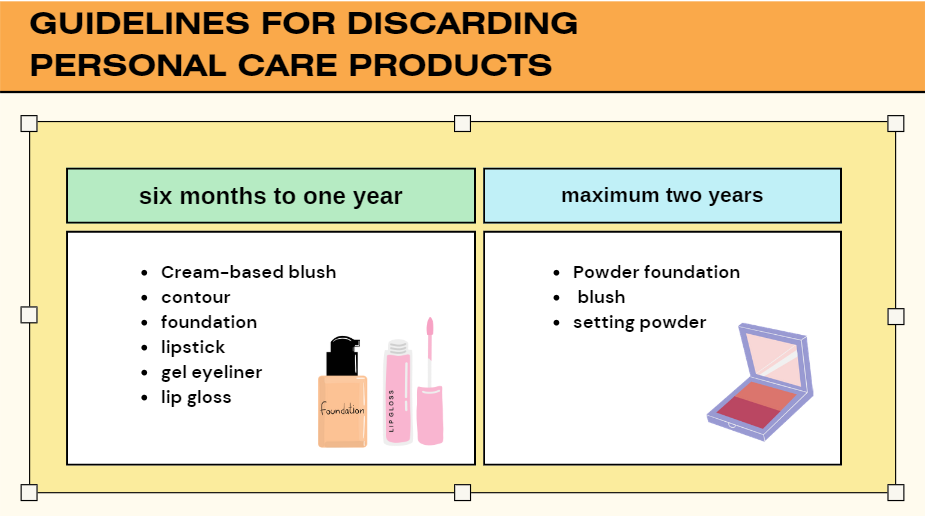The Truth Behind Skincare Expiration Dates + Dermatologist Tips for Avoiding Skin Irritation
Regularly double checking the shelf life of your makeup, skincare and SPF will prevent possible damage.
Even without conducting a formal poll, we know that many beauty enthusiasts amass generously sized collections of products thanks to holiday sales, beauty boxes, and sampling programs.

What begins as an exciting foray into all things beauty can easily turn ugly if products aren’t used within their optimal freshness window. Parting with half-empty jars of premium night cream isn’t on anyone’s wish list, so we’ve compiled some best practices to help you avoid a beauty-related pitfall.
Understand PAO Labeling

Tip: Use a clean skincare spatula to get your product out of a jar.
Ever noticed a graphic on your product that depicts an open jar with a number inside it? That’s the PAO – “Period After Opening” – symbol that was adopted in the EU in 2005 for cosmetic products. The FDA does not require USA manufacturers to utilize this type of labeling, but it is becoming more common as consumers demand that brands follow EU standards.
The time indicators, which range from months to years, vary by product, but remember, these visual reminders are not a reliable indicator of shelf life. How you dispense, use, and store your products greatly impacts their viability. Products can be contaminated if you’re constantly dipping your fingers into the jars, and temperature as well as light can also degrade a product quickly if it isn’t stored properly.
Tip: Use a clean skincare spatula to get your product out of a jar, and date your products when you open them, so you’ll know when to throw them out.
Reserve Your Mixology Skills for the Kitchen
At some point in time, you’ve probably combined a few different skincare products in your hand (like two serums or a moisturizer and a facial oil) and then applied them in one swipe to save time. In most cases, this doesn’t cause skin irritation. But what if you’re trying to create a one-and-done moisturizer/SPF, so you don’t have to mix it on the daily? The trouble is two-fold.
First, when you transfer a product from its original packaging into an alternative container, the preservation system becomes compromised. It’s easy to think that the original expiration date still applies if you dispense the product into another container and seal it up, but that’s not the case.
Second, and even more importantly, mixing sunscreen with moisturizer – especially in bulk – changes the efficacy of both products. There’s no surefire way to get the sun protection or hydration your skin needs when you give yourself the title of at-home chemist. And “Not using enough sunscreen or not reapplying can lead to sunburns,” says Stanford-Educated, Board Certified Dermatologist Dr. Tess Mauricio.
Play it safe! Apply each product as directed and never mix and match ahead of time unless you’re a fan of unexpected skin irritation.
Tip: K-beauty fans familiar with SPF cushion compacts, please heed the advice of Dr. Michelle Wong (aka Lab Muffin Beauty Science) and stop trying to create your own on-the-go sunscreen compacts.
Make Up Like a Pro
Parting with an expensive product can be unbearable, but if you’ve ever had an eye infection, this next tip will be old news to you. Every time you apply mascara straight from the tube, you’re exposing the wand to air and, potentially, bacteria. Liquid eyeliner and mascara should commonly be discarded after 90 days’ use, so if you can’t remember when you opened yours, it’s probably time to toss it.

Here are a few other guidelines for discarding personal care products, courtesy of the Mayo Clinic’s blog:
- Cream-based blush, contour, foundation, lipstick, gel eyeliner, and lip gloss – six months to one year
- Powder foundation, blush, setting powder – maximum two years
But what about those coveted, limited edition or discontinued eye shadow palettes? It depends on how you sanitize your tools or if you’re using your fingers to apply them. The more hands-on contact you have with a product, the greater its capacity to degrade due to bacterial transfer.
Tip: Throw out anything if the consistency has changed or it smells off. And if you really have to dig at a powder formula in order to apply it, it’s time to toss it.
To be safe, take a cue from the professional makeup artists’ guidebook: transfer products to a clean, metal palette before application and use disposable wands and lip applicators to avoid contaminating your makeup, and always wash your tools (i.e., brushes, sponges, etc.) regularly. Dr. Tess says, “Using expired makeup or not cleaning makeup tools regularly can lead to skin irritation and infections.”
Stop Misusing These Products Now
Since Dr. Tess sees every form of skin- and makeup-related irritation in her practice, we take her advice to heart, particularly when it comes to using products appropriately. Four products have a high potential for causing everything from minimal irritation to peeling, allergic reactions, and skin barrier disruption:
- Exfoliants: “Overuse of physical and chemical exfoliants, like scrubs or products containing glycolic acid, salicylic acid, and acne treatments like benzoyl peroxide can strip the skin of its natural oils, leading to irritation, dryness, and sensitivity.”
- Retinoids: “These anti-aging and anti-acne ingredients [are] notorious [for] causing redness, peeling, and irritation if not used properly. It's crucial to start with a low concentration and gradually increase usage.”
- Undiluted Essential Oils: These can cause severe irritation, allergic reactions, and acne breakouts.”
- Products with High Concentrations of Denatured Alcohol: “These products, as well as certain alcohol-based toners, can dry out the skin, leading to irritation and disruption of the skin barrier.”
When it comes to your skin, it’s better to be safe than sorry. You may forego irritation or infection most of the time, but continuously taking chances will most assuredly lower your likelihood of being lucky each and every time.
So … which products do you tend to hang on to longer than recommended?
Loading...